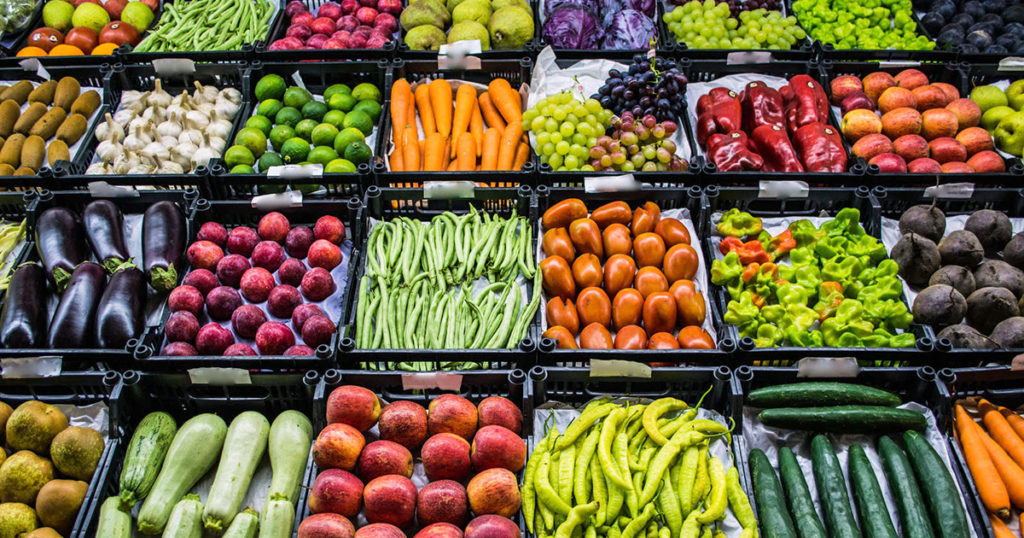New Study Confirms High-Pesticide Produce Linked to Lower Fertility Rates
HEALTH, ENVIRONMENT, ORGANIC, GMO, GENETIC ENGINEERING, 6 Nov 2017
Dan Nosowitz | Modern Farmer, EcoWatch – TRANSCEND Media Service
2 Nov 2017 – News that there may be a correlation between exposure to pesticides and infertility is not new; studies have previously tied higher rates of exposure to decreased male fertility.
But a new study, primarily from researchers at Harvard University’s T.H. Chan School of Public Health, takes a look specifically at women who are already undergoing infertility treatment. And the results seem to have surprised even the researchers, according to a CNN report.
The study looked at 325 women undergoing infertility treatment at Mass General Hospital in Boston. The researchers looked for correlations in whether women successfully got pregnant and gave birth with their diets. The subjects self-reported what they ate, and the researchers took careful note of the amounts of fruits and vegetables associated with very high levels of pesticide residue, based on U.S. Deparement of Agriculture data. (That data shows up in lists like the EWG’s Dirty Dozen).
Among those fruits and vegetables with the highest levels of pesticide residue are spinach, strawberries and peaches; those with low levels of pesticide residue include avocados and onions.
The results are pretty staggering: of those subjects who consumed more than 2.3 servings per day of high-residue fruits and vegetables, the study found an 18 percent lower probability of getting pregnant and a 23 percent lower probability of successfully giving birth. There seemed to be no correlation between those women who consumed lots of low-residue fruits and vegetables.
This study is not a perfect proof of causality; the women surveyed are demographically limited by geographic location (being that they’re all seeking treatment from a single hospital), and they were all seeking fertility treatment in the first place, which might skew the findings. And, of course, the study relied on self-reporting, which can have flaws, too.
But this could be a serious call to action for those seeking to prove a link between infertility and pesticides in our food, even when that food is objectively healthful stuff like strawberries and spinach.
___________________________________________
Related:
DISCLAIMER: The statements, views and opinions expressed in pieces republished here are solely those of the authors and do not necessarily represent those of TMS. In accordance with title 17 U.S.C. section 107, this material is distributed without profit to those who have expressed a prior interest in receiving the included information for research and educational purposes. TMS has no affiliation whatsoever with the originator of this article nor is TMS endorsed or sponsored by the originator. “GO TO ORIGINAL” links are provided as a convenience to our readers and allow for verification of authenticity. However, as originating pages are often updated by their originating host sites, the versions posted may not match the versions our readers view when clicking the “GO TO ORIGINAL” links. This site contains copyrighted material the use of which has not always been specifically authorized by the copyright owner. We are making such material available in our efforts to advance understanding of environmental, political, human rights, economic, democracy, scientific, and social justice issues, etc. We believe this constitutes a ‘fair use’ of any such copyrighted material as provided for in section 107 of the US Copyright Law. In accordance with Title 17 U.S.C. Section 107, the material on this site is distributed without profit to those who have expressed a prior interest in receiving the included information for research and educational purposes. For more information go to: http://www.law.cornell.edu/uscode/17/107.shtml. If you wish to use copyrighted material from this site for purposes of your own that go beyond ‘fair use’, you must obtain permission from the copyright owner.
Read more
Click here to go to the current weekly digest or pick another article:
HEALTH:
- U.S. Terminates Funding for Polio, H.I.V., Malaria and Nutrition Programs Around the World
- Autism, Made in the USA
- Big Pharma Is a Big Menace to Global Health
ENVIRONMENT:
- Climate Misinformation Turning Crisis into Catastrophe, Report Says
- Megadroughts Are on the Rise Worldwide
- Fire Weather
ORGANIC, GMO, GENETIC ENGINEERING:
